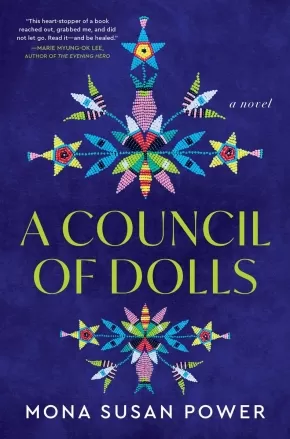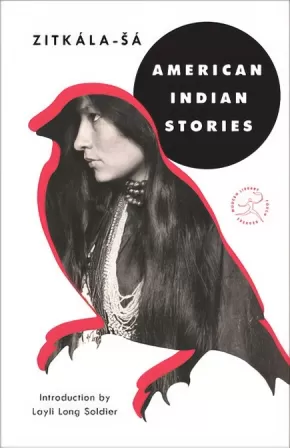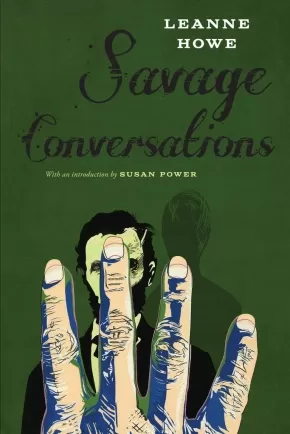Dakota
Synopsis:
The long-awaited, profoundly moving, and unforgettable new novel from PEN Award–winning Native American author Mona Susan Power, spanning three generations of Yanktonai Dakota women from the 19th century to the present day.
From the mid-century metropolis of Chicago to the windswept ancestral lands of the Dakota people, to the bleak and brutal Indian boarding schools, A Council of Dolls is the story of three women, told in part through the stories of the dolls they carried….
Sissy, born 1961: Sissy’s relationship with her beautiful and volatile mother is difficult, even dangerous, but her life is also filled with beautiful things, including a new Christmas present, a doll called Ethel. Ethel whispers advice and kindness in Sissy’s ear, and in one especially terrifying moment, maybe even saves Sissy’s life.
Lillian, born 1925: Born in her ancestral lands in a time of terrible change, Lillian clings to her sister, Blanche, and her doll, Mae. When the sisters are forced to attend an “Indian school” far from their home, Blanche refuses to be cowed by the school’s abusive nuns. But when tragedy strikes the sisters, the doll Mae finds her way to defend the girls.
Cora, born 1888: Though she was born into the brutal legacy of the “Indian Wars,” Cora isn’t afraid of the white men who remove her to a school across the country to be “civilized.” When teachers burn her beloved buckskin and beaded doll Winona, Cora discovers that the spirit of Winona may not be entirely lost…
A modern masterpiece, A Council of Dolls is gorgeous, quietly devastating, and ultimately hopeful, shining a light on the echoing damage wrought by Indian boarding schools, and the historical massacres of Indigenous people. With stunning prose, Mona Susan Power weaves a spell of love and healing that comes alive on the page.
Reviews
“A Council of Dolls reached out, grabbed me and did not let go. Power’s ability to make language sing, cry, scream, and laugh illuminates this heartstopper of a book that shines a light into the dark corners of America’s history. I wanted the generational journey I was taking with these unforgettable characters—and their dolls—to never end. Read it--and be healed." — Marie Myung-Ok Lee, author of The Evening Hero
“A Council of Dolls absorbs through the skin, enters the bone, and disperses through the psyche—it perfectly captures the internal roots of the Native experience. Through the lives of three Dakota women, we grapple with the emotional, psychological, and spiritual toll on Indigenous peoples enduring an often brutal system and, moreover, how strength, healing, and love reverberate down each passing generation to dispense hope and resiliency. I cannot more highly recommend Power’s newest masterpiece.” — Oscar Hokeah, PEN/Hemingway award-winning author of Calling for a Blanket Dance
"Mona Susan Power’s new novel is an honor song to the love and strength of Native families and our stories, to our brilliant selves. I couldn’t have known how much I needed the wisdom and offerings of these pages." — Kelli Jo Ford, author of Crooked Hallelujah
“This tender and magical novel will stay with me for a long time. Mona Susan Power writes with dazzling empathy. The result is a heart-rending and many-layered narrative, a captivating story which is also a thrilling testimonial to the power of stories.” — Margot Livesey, author of The Boy in the Field
"A resplendent novel about the spirited lives of three inspiring women who endure significant change and hardship. Each story so deeply compelling I wanted to read quickly but was magnetized by the transformative power of each voice. A mighty, dazzling whirlwind of storytelling. These stories lift from the page. Prepare to stay up all night. A Council of Dolls is mesmerizing. Take a deep breath! Mona Susan Power can peer into darkness and transform it." — Debra Magpie Earling — Debra Magpie Earling
“A work of exquisite beauty and courageous truth-telling, and an unforgettable homage to ancestral suffering and strength.”
— Sheila O’Connor, author of Evidence of V
“A talent like Susan Power comes along once in a lifetime, and lucky for us she's arrived. Here is a debut so stunning, so extraordinary in its depth and passion, you will swear there's a miracle on every page.” — Alice Hoffman, on The Grass Dancer
"This book is well-written. It includes elements of historical fiction and a bit of real life horror. The role of the dolls in these women's lives was the most thought-provoking aspect of the novel. It added a bit of a fantasy element to the story. I wondered what the author's intention was. The dolls seem to be symbolic in addition to invisible friends for the girls. They were also silent, supposedly inanimate witnesses to what the young women experienced. The parts of the story told from the dolls' POV were especially intriguing. I enjoyed the section about how the Shirley Temple doll was made, and the doll was presented as self-aware. The author wove mystery and symbolism around the dolls without being blatant. She left readers room to make their own interpretations. I really enjoyed and appreciated that. The book is also full of interesting philosophical statements." - Claudia, Goodreads Review
Additional Information
304 pages | 6.00" x 9.00" | Hardcover
Synopsis:
A groundbreaking Dakota author and activist chronicles her refusal to assimilate into nineteenth-century white society and her mission to preserve her culture—with an introduction by Layli Long Soldier, winner of the National Book Critics Circle Award and the PEN/Jean Stein Book Award for Whereas.
Bright and carefree, Zitkála-Šá grows up on the Yankton Sioux reservation in South Dakota with her mother until Quaker missionaries arrive, offering the reservation’s children a free education. The catch: They must leave their parents behind and travel to Indiana. Curious about the world beyond the reservation, Zitkála-Šá begs her mother to let her go—and her mother, aware of the advantages that an education offers, reluctantly agrees.
But the missionary school is not the adventure that Zitkála-Šá expected: The school is a strict one, her long hair is cut short, and only English is spoken. She encounters racism and ridicule. Slowly, Zitkála-Šá adapts to her environment—excelling at her studies, winning prizes for essay-writing and oration. But the price of success is estrangement from her cultural roots—and is it one she is willing to pay?
Combining Zitkála-Šá’s childhood memories, her short stories, and her poetry, American Indian Stories is the origin story of an activist in the making, a remarkable woman whose extraordinary career deserves wider recognition.
Additional Information
160 pages | 5.18" x 8.00"
Synopsis:
May 1875: Mary Todd Lincoln is addicted to opiates and tried in a Chicago court on charges of insanity. Entered into evidence is Ms. Lincoln’s claim that every night a Savage Indian enters her bedroom and slashes her face and scalp. She is swiftly committed to Bellevue Place Sanitarium. Her hauntings may be a reminder that in 1862, President Lincoln ordered the hanging of thirty-eight Dakotas in the largest mass execution in United States history. No one has ever linked the two events—until now. Savage Conversations is a daring account of a former first lady and the ghosts that tormented her for the contradictions and crimes on which this nation is founded.
Reviews
"In Savage Conversations, LeAnne Howe experiments with the form of verse drama to tell the history of the Dakhóta resistance to colonization and the mythos surrounding the Lincoln presidency of that same period. The setting is the asylum to which Mary Todd Lincoln was involuntarily committed ten years after the death of her husband. The characters are the First Lady, whose racism against Native Americans is well-documented, the “Savage Indian” she claims to see and be tortured by nightly, and a rope. The story is a reckoning of hauntings and unprosecuted crimes, an attempt at imagining some way to live with an unbearable history of human rights abuses and genocide." - Kathryn Nuernberger, Kenyon Review
“In May of 1875, Mary Todd Lincoln is confined to an insane asylum. There, she is haunted by a ‘Savage Indian’ who scalps her nightly and sews her eyes open. In Howe's telling, the specter haunting the widowed First Lady is one of the thirty-eight Dakota men, hanged in 1862 by her husband in the largest mass execution in American history. In reading this, I was blown away. Unmoored. Sent spiraling adrift on gusts of wind.” —Rachel S, Harvard Book Store
“Part fever dream, part extended meditation on madness, Howe’s Savage Conversations is a bracing commentary on the nature of guilt and grief.”—Historical Novel Society
“Savage Conversations takes place somewhere in between its sources, between sanity and madness, between then and now, between the living and the dead. It pushes past the limitations of textual sources for telling indigenous history and accounts of insanity.”—Barrelhouse Reviews
“LeAnne Howe’s words are to savor, contemplate, and horrify. Savage Conversations explodes with the stench of guilt and insanity that undergirds the American story, whispered through a personal, familial, national, and supernatural drama revelatory in every sense. Howe’s uncanny images will long haunt readers, just as the Dakota 38 linger in land and memory, both offering a testament to the violent entanglements of past and present.” —Philip J. Deloria
“Savage Conversations invokes our own racial conflict and probes America’s psyche, its struggle to reconcile its colonialist values, indeed its white supremacy, with its multi-ethnic cultures and populations. . . . Through the masterly dramatic management of Mrs. Lincoln’s disturbing and chilling obsessions, Howe shows that there is no escape from the yesterday’s paradigms of power without a true reckoning with the injustices that set the stage for our troubled social landscape.”—On the Seawall
“Howe’s book powerfully contributes to our understanding and re-thinking of a moment in time that we are still grappling with today. In the wake of recent movements to remove Confederate monuments as we work to present the truths of history, Howe’s book directs our attention to a violent event that has not been adequately acknowledged. Through experimental form, Howe refracts a moment of history that readers simply cannot forget, that they will inevitably carry with them long after reading the last page.” —The Carolina Quarterly
Educator Information
Experimental verse drama.
Additional Information
144 pages | 5.00" x 7.50"








